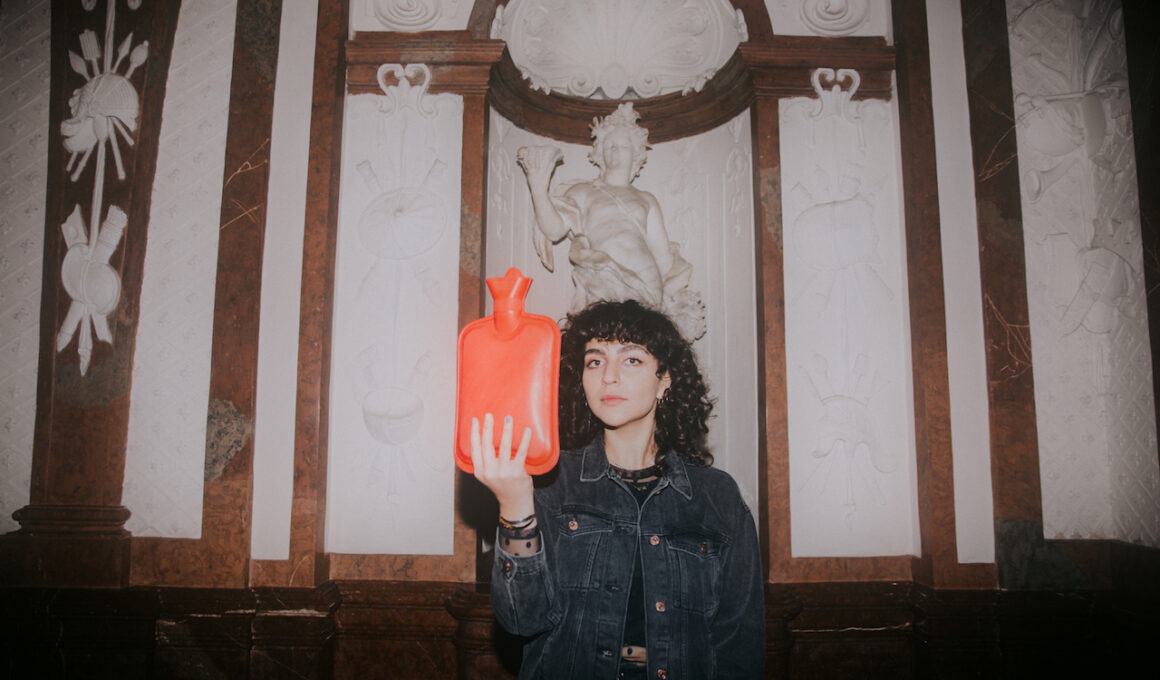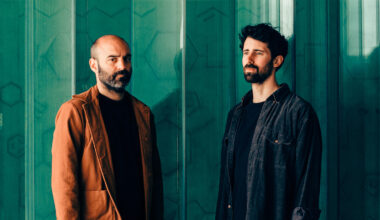Mona Matbou Riahi, born in Tehran in 1990, began her musical journey at the Tehran Conservatory. She embarked on a transformative path to Vienna to study at the University of Music and Performing Arts, where she now thrives as a performer, composer, and improviser.
Her music blends contemporary and classical elements with improvisation and electronic experimentation, creating performances that resonate deeply with audiences. Mona views music as a wild playground for exploring with freedom and imagination, collaborating with dancers, actors, and multimedia artists, and earning recognition at festivals and venues.
“Listening to this musician ensures a journey far and wide, evoking many images through her deep emotional range. She is undoubtedly one of the European voices that already matter and will continue to do so in the years to come.” – Citizen Jazz
On 14 September, Mona Matbou Riahi will perform together with the Trickster Orchestra as part of the Month of Contemporary Music #8 at the ACUD with the programme Unsettling Sounds: Iran & Afghanistan.
FACTS
1. Redwood trees can grow in “fairy rings,” where new trees sprout from the roots of a parent tree, forming a circular arrangement. As the parent tree decays, it nourishes the new trees, allowing them to thrive.
2. Iran is considered the birthplace of occult magic. The ancient Persian word “Maguš,” referring to a priestly class of Zoroastrians, is the root of the modern term “magic.”
3. The atoms in our bodies were formed in the hearts of stars. When stars explode in supernovae, they scatter these elements across the universe, eventually becoming part of new stars, planets, and living beings.
1. What is the biggest inspiration for your music?
Nature, the cosmos, various sounds, emotions, and collaborations, all fueled by moments of childlike wonder and imagination.
2. How and when did you get into making music?
When I was eight years old, my mother bought me a recorder. Suddenly, everything made sense, and playing music felt completely natural. Later, at twelve, I attended music school in Tehran, where I discovered the clarinet—it felt like a missing part of my body that I had finally found. From that moment on, I couldn’t stop playing.
3. What are 5 of your favourite albums of all time?
My listening approach is quite fluid, so it’s difficult to pinpoint just a few favorites. At the moment, I’m enjoying:
• Psychedelic Sanza (1982-1984) – Francis Bebey
• Doneli – Shir Mohammad Espandar
• Sansibar- Targeted individuals
• Music Has The Right To Children – Boards of Canada
• Arvo Pärt – Tabula Rasa
4. What do you associate with Berlin?
Berlin sometimes feels like home, blending joy with hidden trauma. Its mix of darkness and warmth deeply affects me and makes my heart beat differently. When I am not in Berlin, I miss my friends, the music, the loudness, the chaos, the clubs, and dancing endlessly, where I experience intense emotions and a profound sense of physical numbness.
5. What’s your favourite place in your town?
Stadtwanderweg 3 is my favorite place in Vienna. Walking there in the fresh air is both healing and empowering.
6. If there was no music in the world, what would you do instead?
Hmm…If there were no music, I’d probably start a band of aliens to create intergalactic tunes! :)
7. What was the last record/music you bought or listen?
Jimi Tenor – Intervision
8. Who would you most like to collaborate with?
Come closer, I’ll whisper it into your ear: …
9. What was your best gig (as performer or spectator)?
I have so many unforgettable moments with different projects and collaborations, for which I am very thankful, and I can’t choose just one best gig. Recently, I was commissioned by Jazzfestival Saalfelden for the opening of the festival. I played with Dorian Concept, Manu Mayr, and Lou Zon. The piece was titled ‘Nebulift.’ I really enjoyed the process; it was beautiful and intense. On stage, the performance felt like a ritual. After such a ritual, you don’t seek any opinion. It was a kind of freedom that I often try to reach in my practice.
10. How important is technology to your creative process?
Technology plays a crucial role in my creative process, offering a wealth of possibilities that go way beyond my work with live electronics. However, there are times when I prefer to rely on my abilities to create different sounds. I deeply appreciate imperfect sounds and enjoy music that is either loosely controlled or completely unrestrained.
11. Please tell us a little bit about your performance at the Month of Contemporary Music in Berlin.
In collaboration with the Goethe-Institut in Exile, I will perform with the Trickster Orchestra, an ensemble that plays trans-traditional contemporary music in new line-ups. I have worked with them for almost a decade. We will present a new program on September 14 at ACUD-Theater in Berlin. In this program, developed with Afghan writer and women’s rights activist Mariam Meetra, we explore the cosmos of female poets and musicians from Iran and Afghanistan, including Forugh Farrochzād, Shafiqa Khpalwak, Cymin Samawatie, and Atefe Asadi. Our improvisations and compositions will explore the sonic potentials of Farsi, Dari, and Pashto, using techniques that cause acoustic disruptions, erase structure, or embrace the notion of placelessness.


